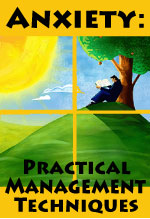Professional Development Resources has released a series of new online courses on school-based assessment and treatment of children in need of special services. The Florida company, which is accredited to provide continuing education to psychologists, school psychologists, social workers, counselors, marriage and family therapists, speech-language pathologists, registered dietitians and occupational therapists, has announced new courses addressing issues that will be occupying school professionals as the new school year begins.
The new continuing education (CE) courses are intended to equip school-based professionals with the tools they need to deal with back-to-school issues they are sure to encounter in the coming months. Among the new courses are topics providing up-to-date information on autism spectrum disorders, school refusal behavior, reading and literacy interventions, and the developmental effects of alcohol on children and adolescents.

Click to view school-based CE courses
In the coming weeks, millions of children will return to school for the new academic year, many of them bringing not only pencils and books, but also a wide range of difficulties for which they will need attention from school-based professionals. Those with autism spectrum disorders will present learning and social behavior issues that can overwhelm teachers already challenged with overcrowded classrooms. Others may be suffering from the severe anxiety and avoidant behaviors that are part of school refusal patterns, posing major challenges for both parents and school professionals. Still other children will require screening and intervention for a wide variety of learning and developmental disorders, including those who will need specialized assistance with literacy and reading.
“Professionals who work with school-age children have a unique opportunity to identify those who have the need for services,” says Leo Christie, PhD, CEO of Professional Development Resources. “The classroom setting is where learning and behavioral difficulties are highlighted and also where they can be identified and remediated. If we can deliver new information on evidence-based assessment and intervention to the psychologists, social workers, school counselors, speech-language pathologists and occupational therapists who see these children every day, they can have a major impact on getting them the help they need.”
The need is great. In the case of autism spectrum disorders (ASD), the most recent research data from the Centers for Disease Control and Prevention’s Autism and Developmental Disabilities Monitoring (ADDM) Network found that 1 in every 110 eight-year old children were diagnosable for an ASD. This is a very large number of children, and the incidence of autism seems to be on the rise.
School refusers are students who can’t – or won’t – go to school, for any number of reasons. Researchers offer a “best guess” that somewhere between 5% and 28% of children display some aspect of school refusal behavior at some point in their lives. This is a wide range, attributable to variations in the definition of school refusal. Again, this is a very large number, and the behaviors associated with school refusal are so challenging that they can monopolize the time of parents and teachers alike.
Among the new courses offered by Professional Development Resources are:
Other continuing education courses with children in mind can be seen here: http://www.pdresources.org/Courses/Other/NewCourses/CourseID/1/bts
About Professional Development Resources:
Professional Development Resources is a Florida nonprofit educational corporation founded in 1992 by licensed marriage and family therapist Leo Christie, PhD. The company, which is accredited by the American Psychological Association (APA), the Association of Social Work Boards (ASWB), the National Board for Certified Counselors (NBCC), the American Speech-Language-Hearing Association (ASHA), the American Occupational Therapy Association (AOTA), and the Commission on Dietetic Registration (CDR) of the American Dietetic Association (ADA) – as well as many other national and state boards – has focused its efforts on making continuing education courses more cost-effective and widely accessible to health professionals by offering online home study coursework. Its current expanded curriculum includes a wide variety of clinical topics intended to equip health professionals to offer state-of-the art services to their clients.
Like this:
Like Loading...
 The pursuit of continuing education ensures the best possible standards for the mental health counseling profession. All licensees are required to participate in continuing education as a licensing condition.
The pursuit of continuing education ensures the best possible standards for the mental health counseling profession. All licensees are required to participate in continuing education as a licensing condition.































